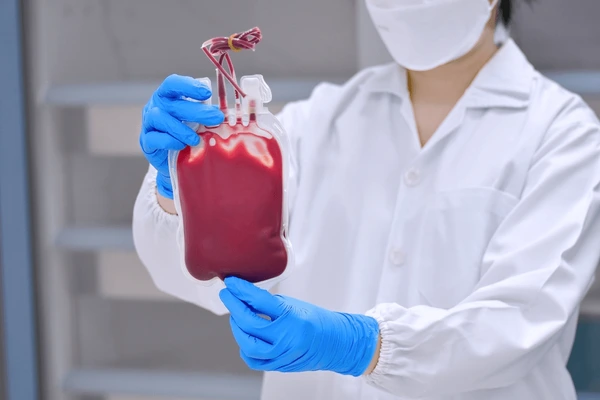In a major leap for global healthcare and emergency medicine, Japanese researchers have developed a revolutionary form of artificial blood that is compatible with all human blood types and can be stored for up to two years. This breakthrough holds the potential to transform blood transfusion practices, particularly in remote regions, conflict zones, and disaster response scenarios where access to matching donor blood is limited.
The research, conducted by a team from Japan’s National Defense Medical College, has culminated in the creation of an artificial blood product capable of performing key functions of human blood—including oxygen delivery and clotting—without the limitations associated with conventional blood donations. The synthetic blood contains both red blood cell and platelet substitutes, and early animal testing has demonstrated high survival rates following severe blood loss.
One of the most remarkable aspects of this development is its universal compatibility. Unlike traditional transfusions that require matching of blood types (A, B, AB, O and Rh factor), this artificial blood can be administered to anyone without risk of adverse reactions. This eliminates the often critical delay in cross-matching during emergencies.
Moreover, the artificial blood has a remarkable shelf life of two years at room temperature, a significant improvement over donated human blood, which typically must be used within 42 days and requires refrigeration. This extended lifespan and ease of storage are expected to significantly benefit military operations, rural healthcare systems, and disaster preparedness initiatives.
Dr. Hiroshi Matsumoto, lead researcher on the project, emphasized the impact of the innovation: “This artificial blood can be a game-changer for trauma care. It not only reduces dependence on human donors but also ensures that life-saving transfusions can be conducted swiftly and safely, even in challenging environments.”
The development also holds promise for countries facing chronic blood shortages and declining donor pools due to aging populations—issues particularly relevant to Japan. With global demand for blood expected to rise due to growing populations and healthcare access, universal artificial blood presents a sustainable and scalable solution.
Experts worldwide have praised the research, while also calling for continued clinical testing to ensure safety and efficacy in human trials. If proven successful, Japan could become a pioneer in exporting this technology globally, changing how nations prepare for public health emergencies.



